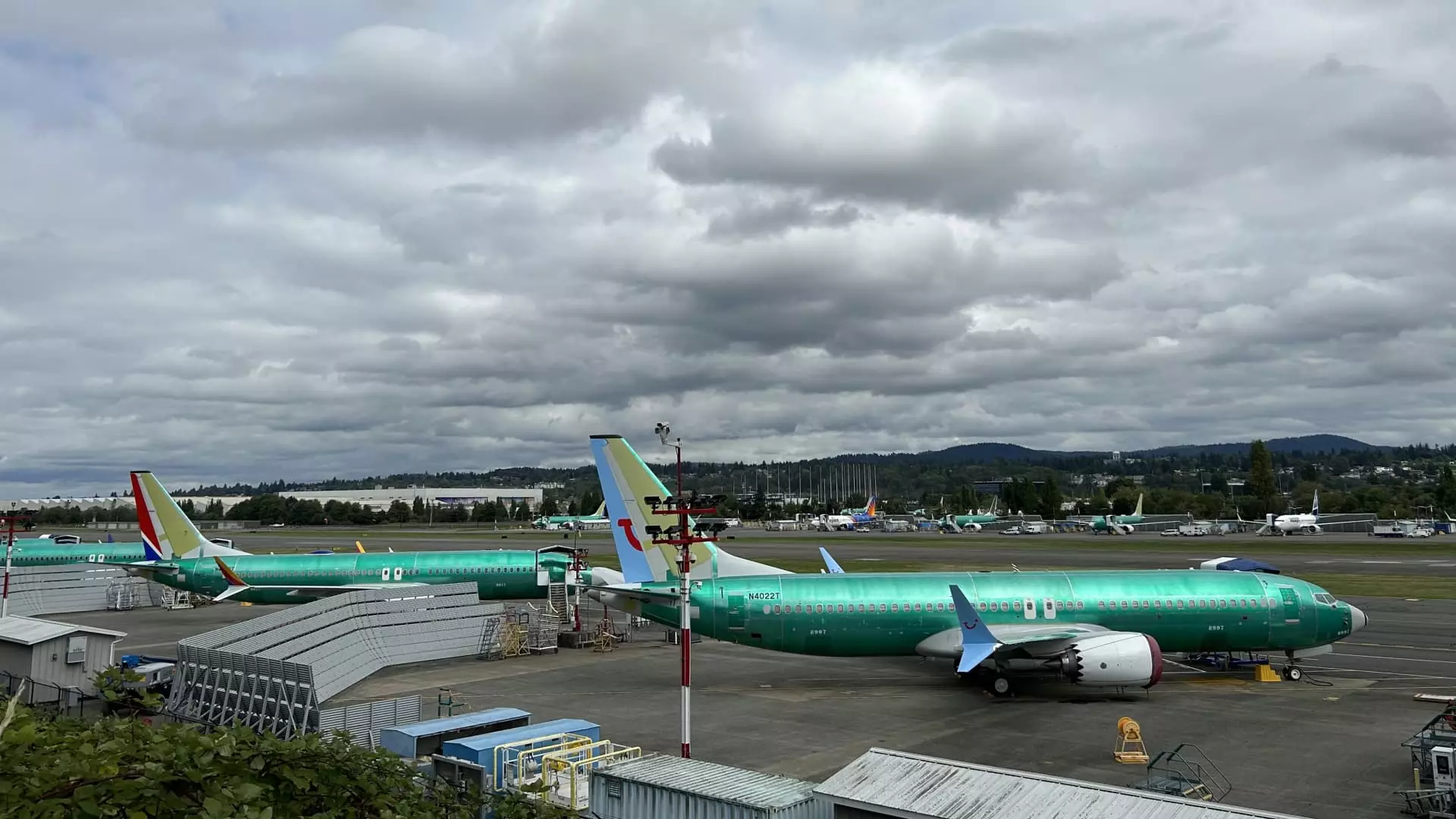In 2024, Boeing found itself in a precarious situation, delivering only 348 airplanes—a significant decline of nearly a third compared to the previous year’s figures. This downturn can be largely attributed to persistent operational challenges, most notably a critical incident from the previous year involving a midair door panel malfunction. Additionally, a machinist strike that occurred in the fall compounded these issues, effectively halting production when demand was peaking. As a result, Boeing faces a widening delivery gap in comparison to its primary competitor, Airbus, which celebrated a stellar year with 766 aircraft deliveries, the highest output since 2019.
Both Boeing and Airbus are navigating turbulent waters with supply chain disruptions that are hampering their production capabilities. These challenges, while affecting all aspects of the industry, are particularly pronounced when it comes to meeting the demands of a robust backlog of orders. Airlines around the globe are feeling the heat from increased lease rates driven by aircraft shortages, and industry experts at aviation data firm IBA have projected that rental prices could reach new records this year. This situation not only impacts airlines financially but also induces a ripple effect through the aircraft manufacturing ecosystem.
Inside this tumultuous backdrop, December brought a glimmer of hope for Boeing as the company managed to deliver 30 airplanes, marking the resumption of production for its flagship 737 Max following the end of a nearly eight-week-long machinist strike. Deliveries hold significant importance in the aerospace industry since they typically represent the point at which customers remit substantial portions of payment. Nonetheless, the overall decline in total deliveries reflects broader challenges, and companies like Boeing must address these issues urgently to ensure financial stability and regain market trust.
New Orders: A Mixed Bag of Opportunities and Setbacks
Though Boeing showed resilience by logging 142 gross orders in December—most notably securing a massive order of 100 737 Max aircraft from Turkey’s Pegasus Airlines—this was somewhat overshadowed by the challenges that marked the year. The company also registered orders for 30 787s from flydubai, a deal first unveiled at the Dubai Air Show. However, the cancellation of 130 orders tied to India’s now-defunct Jet Airways illustrates the volatile nature of the market and the potential pitfalls that can derail growth strategies.
As Boeing heads toward critical discussions with investors, scheduled for the end of January, the spotlight will undoubtedly be on the company’s strategies for ramping up production. CEO Kelly Ortberg and other leaders are tasked with addressing pressing concerns about restoring profitability and overcoming the challenges that have plagued the organization throughout the previous year. The upcoming conversations represent an essential moment for Boeing, one that could either empower the company to rebound or signal deeper issues that need to be rectified before it can reclaim its position in the competitive aerospace market.

